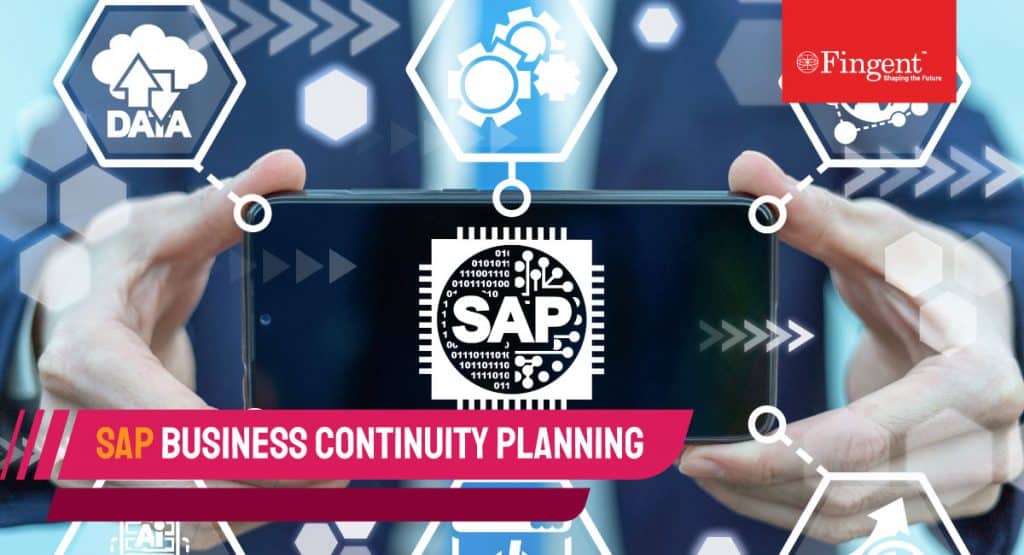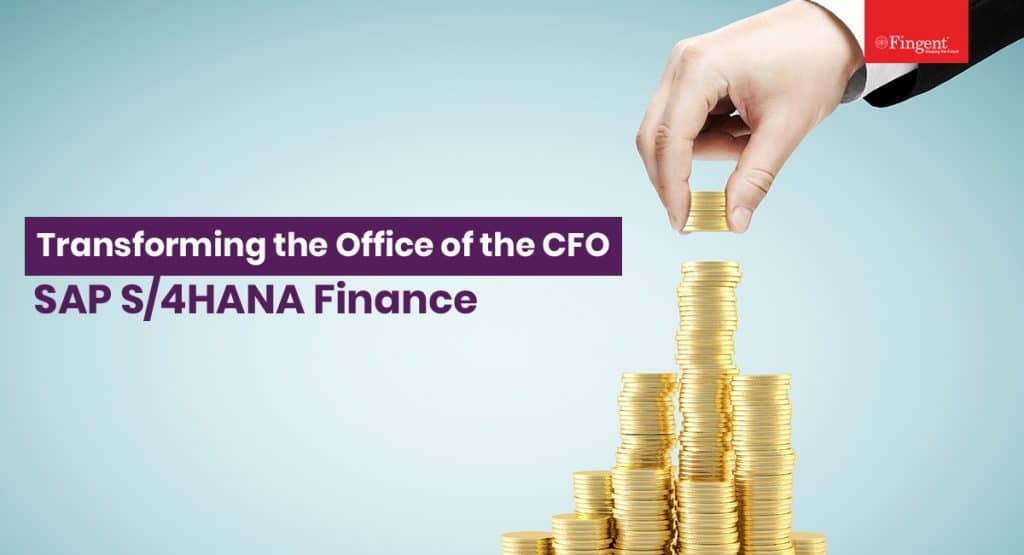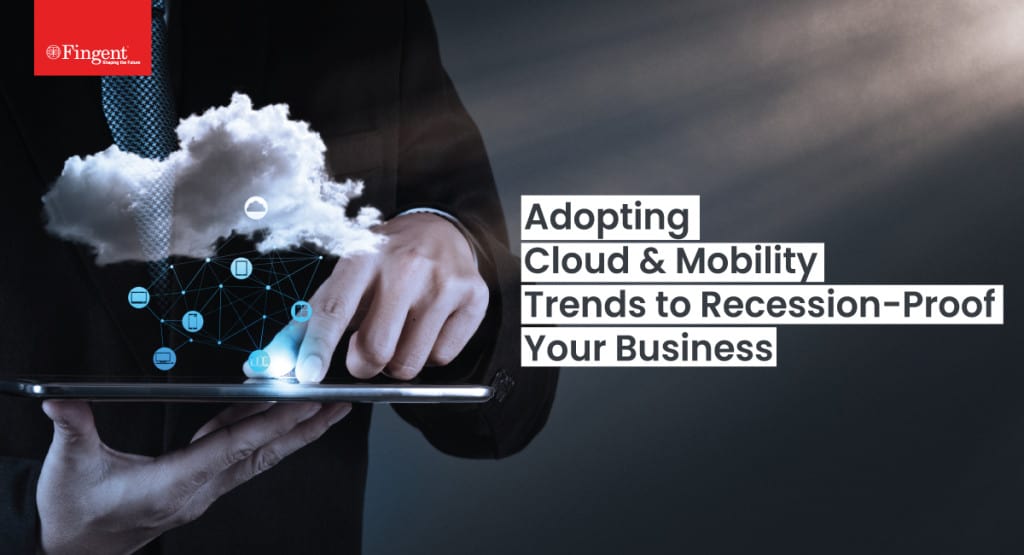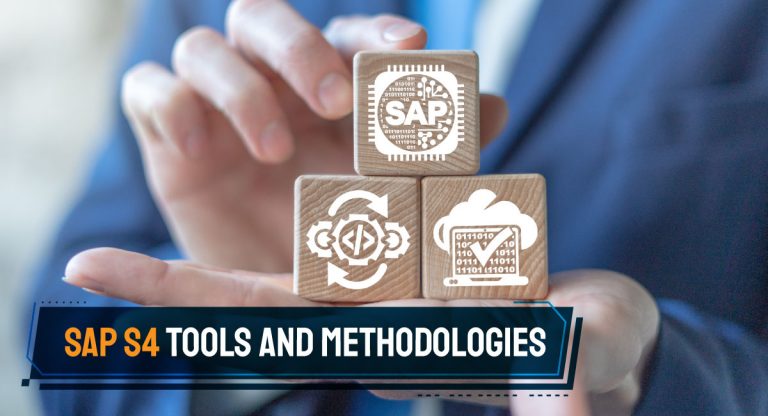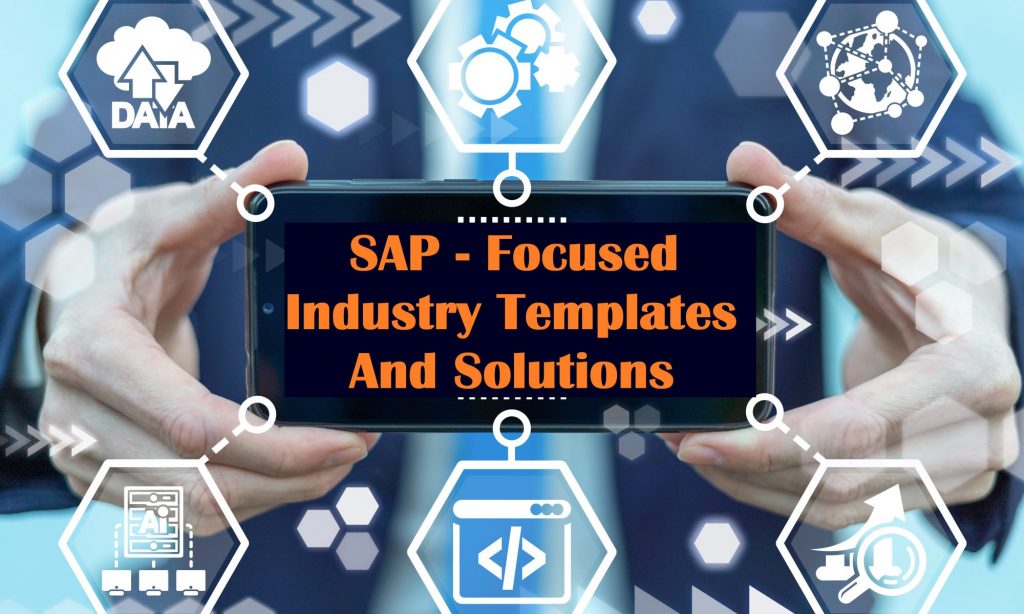Tag: SAP AMS
SAP ATTP Enables COVID Vaccine Manufacturers to Overcome Supply Chain Vulnerabilities. Find How!
Vaccinating the whole world and making everyone resistant to COVID-19 is a daunting task. From managing product life cycles to supply chain tracking, and massive distribution, SAP Advanced Track and Trace for Pharmaceuticals (SAP ATTP) is helping the world’s leading vaccine manufacturers.
With regulatory requirements looming, meeting the target of delivering COVID vaccines to millions will require an efficient system that will eliminate any hiccups in the supply chain. Pharmaceutical companies must examine serialization and track and trace solutions to control the chain of custody to prevent tampering, counterfeiting, theft, and diversion.
Read more: 7 Practical Steps to be Implemented by Organizations that Engage in COVID-19 Vaccine Delivery
Thankfully, SAP ATTP (SAP Advanced Track and Trace for Pharmaceuticals) has emerged as a solution. It can enable your company to comply with serialization and associate reporting requirements. As SAP ATTP was co-developed with the leading pharmaceutical companies, it can be tailored to address the specific needs of your pharma company and your stakeholders. This blog will explain how SAP ATTP can quicken and smoothen the race to vaccinate the world. Let us begin by understanding what SAP ATTP is.
What is SAP ATTP?
As the name SAP Advanced Track and Trace for Pharmaceuticals suggests, SAP ATTP involves the journey of the vaccine from its source (the pharmaceutical company) to the destination (the end-user) within the supply chain. SAP ATTP enables companies to enforce specific measures to identify the product and view its journey to reduce counterfeit and stolen vaccines.
It addresses the regulatory requirements for serialization, tracking, and tracing of all pharmaceutical products, including COVID-19 vaccines. It is specifically designed to solve the issues with expected data volumes, queries, and reporting as per the guidelines. SAP ATTP is now playing a critical role in major pharmaceutical companies across the globe.
Leading COVID vaccine producers like Moderna, German vaccine manufacturer CureVac, AstraZeneca, and others are relying on SAP to manufacture and distribute vaccines on a global scale. According to SAP’s report, 18 of the world’s top 20 COVID vaccine producers run their entire product lifecycle and supply chain processes on SAP for better traceability, tracking, and serialization.
Read more: SAP for Business: 9 Ways to Maximize Business Performance
What is the significance of SAP ATTP?
If you have experienced a delay in delivering an urgently needed pharmaceutical product, you can understand the potential impact it can have on people and society. If the first challenge was to create and test vaccines at record speed, the next challenge is to vaccinate people across the globe before the virus mutates and becomes more virulent. This demand is stretching the supply chain to its limits. Digitizing their production to achieve production scale and flexibility is critical as most vaccine producers are data-heavy industries.
What are the advantages of using SAP ATTP software?
SAP ATTP is a solution that facilitates data exchange with packaging lines, supply chain partners and contract manufacturing organizations, and warehouse applications. Here are a few benefits of this software:
- Integrates serialization with business processes
- Enables compliance with directives across markets
- Reduces compliance costs for all serialization requirements
- Streamlines and manages a secure pharmaceutical supply chain
- Packaging line integration
- Boosts efficiency of your supply chain
- Enables simple reporting processes
How can SAP help win the race to vaccinate the world?
For perhaps the first time in history, pharmaceutical companies were pushed to focus all their resources on the development of vaccines in record time. And for the first time in history, they are expected to win the race to vaccinate the global population. This is an opportunity for intelligent enterprises to make a difference. SAP rose to assist by providing various solutions to address this pressing need.
1. Enables collaboration with supply chain partners
SAP helps pharmaceutical companies comply with international legislation, which focuses on ensuring genuine medicines reach patients and product authentication. SAP applications enable serial number management and regulatory reporting capabilities. Companies can use SAP to facilitate collaboration with supply chain partners, such as contract manufacturers and wholesalers. SAP cloud platform enables trading partners to exchange large amounts of serialization and associated data.
- Pharmaceutical companies must guard against product counterfeiting, reimbursement fraud, diversion, and medication errors.
- A company must include verification in case of the return of vaccine packs or an apparent tampering of the products.
- SAP’s digital network consists of a blockchain-based verification repository to eliminate such counterfeit products along the supply chain.
- Once manufacturers push data into the blockchain, wholesale distributors can execute verification requests. Since these solutions can be integrated into a pharmaceutical company’s backbone, your company enjoys a holistic view of its end-end processes.
Read more: 6 Tips for Logistics and Supply Chain Leaders to Plan COVID-19 Vaccine Distribution Strategies
2. Ensures patient safety and eliminates the risk of fake vaccines
Pharmaceutical thefts have cost billions of dollars worth of losses annually. One measure taken to overcome this challenge was to implement serialization. Serialization of pharmaceuticals protects the end-user and prevents manufacturers from producing fake goods.
SAP serialization allows you to provide a unique identifier (UID). It enables manufacturers to define regulations based on the laws of each country. For example, certain countries may require the entire product dose to be serialized, while others may require each unit to be serialized. SAP allows you to comply according to your country’s regulations. However, serialization is just the first step.
3. Helps you gain visibility of the vaccine from its source to destination
SAP ATTP allows for a transparent journey of vaccine from its source to the destination. Tracking involves knowing the current status, such as the current location of the shipment, in whose possession it is, and the condition of the vaccine, while Tracing involves knowing the past, such as where the vaccine has been, who had it, and was it handled appropriately.
SAP ATTP is beneficial to companies since the early stages of production and distribution. As it allows you to enter all the product details into the system, it is easy to locate where the product is at any given point in the supply chain. Furthermore, SAP can enable withdrawing a specific compromised batch instead of an entire shipment saving a considerable amount of money.
Pharmaceutical regulations vary from country to country. Nevertheless, all pharmaceutical products must be serialized for easy identification within the supply chain. Apart from this, certain governments may require companies to report data to regulatory bodies or authorities. They may also require verification of the products to ensure it is an authentic product. SAP can make these tasks more efficient as it allows you to:
- Generate and format serialized numbers
- Aggregate goods for quick and easy scanning of the vaccine units
Read more: How SAP Helps Realize Voice-enabled Warehouse Operations
Leave no loopholes in the vaccine supply chain
SAP ATTP helps pharmaceutical industries to gain real-time visibility into the location and condition of their product along the entire supply chain. In addition, it helps them perform better management by allowing real-time reporting and analysis to turn insights into actions fueling the mission to vaccinate the world.
As an SAP Silver Partner, Fingent top software development company, can help you implement SAP ATTP seamlessly and cost-effectively. Time is of the essence right now, and vaccine producers need to get the vaccine out faster while ensuring safety and compliance. So let’s save lives together. Connect with our SAP expert to see how you can benefit from implementing Advanced Track and Trace for pharmaceuticals.
Stay up to date on what's new

Featured Blogs
Stay up to date on
what's new



Talk To Our Experts
How Business Intelligence in SAP Helps You Become a Data-driven Organization
Business Intelligence is the data powerhouse essential for the survival of your business. BI can help organizations evaluate and transform complex data into meaningful, actionable information. This information allows organizations to generate operational insights and supports effective, strategic, and tactical decision-making. Business Intelligence in SAP makes data-driven decision-making better, faster, and more effective. This article helps you understand all you need to know about Business Intelligence in SAP.
Read more: SAP for Business: 9 Ways to Maximize Business Performance
Business Intelligence in SAP
Business Intelligence in SAP is a centralized suite for data analysis and reporting. It allows you to gain data from multiple data sources and distribute it to different Business Intelligent systems. In essence, Business Intelligence in SAP can work as a target system for data transfer or a source system for data distribution.
Business Intelligence in SAP allows an organization to share information in real-time with all involved, from the CEO to lower-level employees. It offers a panoramic view of data to all those with appropriate credentials. Business Intelligence in SAP can be customized easily to your specific needs. This would also mean that you can access the information much faster.
Read more: How SAP Supports Effective Business Continuity Planning
Advantages of Business Intelligence in SAP
According to Statista, the global market size for business intelligence (BI) and analytics software applications is forecast to touch USD 17.6 billion by 2024. Such an increase is a clear indication of the wide range of benefits Business Intelligence in SAP can offer organizations.
Here are a few advantages of Business Intelligence in SAP:
1. An entire range of BI-related products
SAP offers all the BI tools necessary for your company to leverage a data platform. Business Intelligence in SAP allows you to deploy these tools according to your requirement. The BI tools can be used for querying, analyzing, and reporting. You can also use them to identify trends in the data and discover any underlying issue that adversely affects the business.
SAP Analytics Cloud allows you to centralize your BI tools. From this central point, you can provide permission-based data access to the employees according to their job requirements. Additionally, ad hoc reporting tools enable you to formulate questions and find instant answers. You can gather these answers and data into valuable insight, which can be shared with the rest of the relevant employees.
Read more: 7 Crucial Business Challenges Solved by SAP Analytics Cloud
2. Information at your fingertips
Business Intelligence in SAP comes with an enterprise-wide sharing functionality. It simplifies the data to be understood easily in common business terms rather than complex semantic language. Simplifying data makes it easy to search for critical information and gain valuable insights.
Moreover, data simplification and insights generation allow you to share your findings and insights with other users across your organization. For good decision-making, businesses need valuable insights into various business modules such as finance, sales, operations, and human resources. Business intelligence combines all the views from these modules to provide more accurate information. Now, each decision-maker is armed with relevant information to make critical decisions that affect your organization.
3. Self-service visualization capabilities
Dragging data from vast storage and introducing it to a user is a gigantic task that requires data-specific knowledge and engineering skills. SAP offers several self-service tools for BI users. The self-service visualization capabilities of Business Intelligence in SAP allow its users to view and analyze data more efficiently. With this capability, you can aggregate data, conduct trend analysis, and uncover valuable insights. This can reduce maintenance costs while considerably shrinking the time spent on reporting-related tasks.
Read more: How Fingent Helps CFOs Gain New Insights and Reliably Enable Key Decisions
4. Ability to create interactive BI dashboards
Business Intelligence in SAP enables you to create interactive BI dashboards that can be customized for each user. Additionally, decision-makers can access and view these dashboards from anywhere and at any given time.
You can access the dashboards via smartphones. The dashboards are also accessible through browsers, applications, or desktop widgets, even when you are offline. It means that all users can remain connected to the company’s server at all times.
5. Integration with MS Office application
You can realize the true value of the data you possess if only you share those insights and reports with other users. Since most reporting and dashboard modules are integrated with sharing capabilities, your employees can easily share valuable insights. Integration with the MS Office application allows users to perform data analysis in multiple dimensions. It enables them to manipulate and filter data dynamically.
Business Intelligence in SAP allows you to import large amounts of data to MS Excel, enabling you to analyze and forecast effectively. You can also embed information into MS PowerPoint. This feature is helpful when you need to present business insights to stakeholders and colleagues.
6. Easy to use interface
Business Intelligence tools can be very complicated, with a complex interface designed mainly for skilled programmers or data analysts. However, Business Intelligence in SAP comes with a good instrument that allows for an intuitive user interface. With a bit of time and skill, it is easy to master the interface. Onboarding a new business user becomes more convenient as they can access all the instruments from a single web-based interface.
7. Greater flexibility and scalability
Business Intelligence in SAP is easy to integrate as it offers deployment options for most of its products. As Business Intelligence in SAP is service-oriented, it is easily scalable. Based on the need of the hour, businesses can either increase or decrease. Though you begin using business intelligence for a single project, later, you can expand to the rest of the organization. It means that both large enterprises and small businesses can benefit from Business Intelligence in SAP.
8. Allows your IT department to engage in more meaningful work
Business Intelligence in SAP can automate mundane and time-consuming tasks. It also ensures that the employees in your organization have all the resources they need to perform their tasks. It reduces the dependency on your IT department and helps your IT professionals focus their time on more productive and relevant jobs.
Read more: Top 7 Business Benefits of Adopting SAP Intelligent Robotic Process Automation
Bottom line
Easier access to data, smarter insights, better business – you can’t go wrong with Business Intelligence in SAP. It helps you run complex queries and provides you with a highly scalable solution. What more can you ask for?
Fingent is an SAP Silver Partner and is well-placed to help you get started with your BI journey. Get in touch with us and transform your business into a data-driven organization.
Stay up to date on what's new

Featured Blogs
Stay up to date on
what's new



Talk To Our Experts
How Can Your Business Gain Value from SAP S/4HANA Implementation?
Companies need a digital core to overcome complexity and drive digital transformation. SAP S/4HANA is a digital core ERP that can help companies overcome complexity and thrive in today’s disruptive market.
Businesses are growing by the minute and are moving faster than ever before. Thanks to the innovative developments and improvements of the digital world!
However, today’s unprecedented disruption calls for more. Businesses need unique ways to emerge stronger from intense challenges that they might never have encountered before. C-level leaders and business owners are looking for ways to become more resilient. They understand that to keep up with ever-changing customer needs, they must invest in automation, analytics, and cloud technologies. The key priority has consequently been the move to SAP S/4HANA.
S/4 HANA is an intelligent ERP software that helps you reinvent your business model by providing easy access to real-time data.
Read more: SAP S/4HANA: Redefining End-To-End Solution
C-level leaders and executives need to understand that the journey to SAP S/4HANA is not just an IT exercise. It is an integral part of their broader digital transformation. Business owners need to review their business processes, end-to-end data, and system integrations. Such a review would assist them in developing an overall business value to guide their journey. This blog explores eight practical ways to raise business performance with your SAP S/4HANA journey.
What makes your SAP S/4HANA journey complicated?
Before we get into how to get your business booming with SAP S/4HANA, let’s look at why some C-level leaders and executives find this journey challenging.
Planning and delivering your SAP S/4HANA journey is a once-in-a-generation opportunity for transformation and generates significant investment returns. Today, C-level leaders and executives struggle to answer these three hows:
- How to articulate the business value case to generate substantial returns on investment?
- How to ensure that the program remains business-led?
- How to leverage the power of the cloud?
Leaders and executives must consider creative ways to harness the power of SAP S/4HANA. It includes the design phase, building phase, and running phase. Business value can only rise when new sources are developed that enable the business to react quickly to recover from disruption.
Read more: 6 Capabilities of SAP S/4HANA That Will Help You Become an Intelligent Enterprise
8 practical steps to gain business value from SAP S/4HANA journey
Here are eight practical steps that answer the ‘hows’ and more:
1. Articulate the business value case
You may have already set aside a significant amount of resources, both in terms of finances and staffing, to embrace the journey to SAP S/4HANA. Beginning this journey with a holistic, business-led value case will help you realize its full potential and make the best of these resources. Thankfully, there is a distinct and compelling business case for every digital function. What does this mean for C-level leaders and executives?
It would mean that they must take the time to create a fact-based business value case that can be used as an anchor throughout the SAP S/4HANA journey. Why? Because a well-defined business value case will help you fund all digital transformation efforts, including SAP S/4HANA.
Read more: SAP S/4HANA: Transforming The CFO into a Business Value Creator and Role Model
2. Avoid a ‘technically configured’ approach
A technology-led approach might not deliver the expected results. Why? In most cases, C-level leaders may find it daunting to understand their role in the digital transformation journey. So they prefer to delegate the responsibility to others. Such delegation instantly turns the digital journey into a secondary priority. Since others may not understand the business as you do, it will become challenging to configure the transformation to be truly business-led.
C-level leaders and executives must realize the potential and take an active role in the transformation. You can then think strategically to create a clear path to a more agile and insight-driven business.
3. Unleash the power of cloud solutions
To make quick and informed decisions, combine your internal and external data sources. Cloud-based applications and infrastructure will help you create a data strategy to deliver real-time insights. A well-defined cloud strategy will enable you to align the data, identify the best data sources, understand how to measure and maintain quality data, and manage your data.
Read more: Why It’s Time to Embrace Cloud and Mobility Trends To Recession-Proof Your Business?
4. Integrate suppliers before it is too late
For specific industries such as automation, supply ecosystems are strategically important. Though it may seem expensive, ensure to integrate your suppliers before SAP S/4HANA is well advanced. Such integration can be less expensive where custom developments are not warranted.
5. Leverage AI to boost your current and future business models
Businesses worldwide face extraordinary challenges and disruption today. Automation-driven growth will be the only constant during this period of uncertainty. Though SAP may not provide everything you currently need to build your business, it allows you to integrate non-SAP automation for various goods and services. Marrying historically siloed data with AI techniques can thus contribute to demonstrable ROI.
Read more: How SAP Supports Effective Business Continuity Planning
6. Integrate third-party content into SAP S/4HANA
SAP S/4HANA has been the backbone of most IT strategies. It provides critical infrastructure to support a variety of use cases. Most organizations know that connecting to third-party content is crucial for their ongoing success and competency. Such integration can help you create unique sector-specific use cases, so do not hesitate to integrate third-party content.
Read more: Deploying SAP S/4HANA: Methodologies and Tools to Adopt
7. Use available data to speed up innovation lead time
Intelligent data management can help you break down information silos and provide you with the insight and control necessary to make tactical business decisions. When organizations collaborate to share and manage data, both parties can create tremendous potential value for their businesses.
However, tapping into the value of data ecosystems can be a challenge. You can overcome this challenge by starting small and scaling later and involving partners early on. SAP S/4HANA allows you to effortlessly harness their data by breaking down your corporate strategy into different streams. Thus, businesses can dramatically lower risk and accelerate implementation.
8. Leverage SAP Cloud Platform
SAP S/4HANA cloud database allows you to make faster decisions. Since you can integrate data from across your enterprise, you can develop applications and tools required to store volatile data. SAP Cloud Platform allows you to avoid repeating failures and minimize cost.
Manage the change impact
The SAP S/4HANA journey brings in a significant change. Treating this journey as a minor upgrade can lead to missed opportunities to leverage its full potential. This makes it extremely important to partner with the right service provider to guide you.
As an SAP Silver Partner, Fingent has the expertise and experience required to help you make your SAP S/4HANA journey a success. Let’s talk.
Stay up to date on what's new

Featured Blogs
Stay up to date on
what's new



Talk To Our Experts
Why is SAP the Go-to Solution for Managing Your Complex Business Functions
SAP is a powerful ERP solution for all kinds of enterprises and their subsidiaries. From streamlining and automating to standardizing your business, SAP for business performs numerous functions and accelerates business growth.
Systems, Applications & Products in Data Processing or SAP is one of the world’s leading ERP (Enterprise Resource Planning ) software. The software consists of several integrated modules that cover virtually every aspect of modern business management. Fingent, being an SAP Silver Partner, helps you realize the full potential of the wide-ranging SAP solutions that can maximize your business performance and boost profitability.
How does SAP help businesses?
Most of the traditional business models have decentralized data management, with each department storing its operational data in the individual database(s). Decentralized data storage makes it difficult for employees from different departments to access each other’s information needed to complete their tasks. Moreover, duplication of data across the departments leads to data errors and increases IT storage costs.
SAP software centralizes data management and provides multiple business functions with a single source of the truth. This enables companies to manage complex business processes efficiently, allow easy access to employees of different departments, and gain real-time insights across the organization. It helps businesses improve operational efficiency, increase productivity, boost customer experience, and eventually increase profits.
SAP for business
SAP for business offers solutions across different areas such as:
- ERP and Finance
- CRM and Customer Experience
- Network and Spend Management
- Supply Chain Management
- HR and People Engagement
- Business Technology Platform
- Digital Transformation
- Digital Supply Chain
- Small and Midsize Enterprises
- Experience Management
- Industry Solutions
- Industry 4.0
- Intelligent Enterprise Solutions
- Cloud solutions
SAP for business maximizes business performance by giving companies step-by-step guidance to set up their tech infrastructure.
Here’s how.
1. Wide-ranging experience
From government financial institutions to small businesses, SAP provides tech solutions to everyone. We extend our support, right from identifying your requirements to implementing and testing your SAP solutions to maintaining them once they are in place.
Read more: Why partner with an SAP AMS provider like Fingent
2. Efficiency improvement
In the past, companies were forced to repeat tasks day in and day out. Thanks to technology! The situation has changed today. Technology has provided companies with more innovative ways of doing repetitive manual tasks. From collecting large amounts of data to filling the databases, SAP offers an efficient and faster way of doing things.
Enter SAP IRPA. This Intelligent Robotic Process Automation suite accelerates your move towards Intelligent Enterprise. With SAP IRPA, you can redirect your resources to high-value functions.
Read more: Top 7 Business Benefits of Adopting SAP Intelligent Robotic Process Automation
Additionally, SAP provides several options to streamline different business processes and improve efficiency throughout your organization, such as SAP S/4HANA, SAP Analytics Cloud, SAP Fiori, etc.
3. Affordability and scalability
Small businesses and start-ups face the challenge of ensuring that their technology infrastructure is scalable. It means you will have to accommodate the growth in every aspect of your business. You will have to consider fitting more data, equipment, and employees. For this, you will need a system that can accommodate growth easily without the need to make changes from the grassroots level. That is where the SAP system comes into the picture. It is designed to scale up smoothly according to your business requirements post the initial implementation.
SAP for business ensures that you never invest in resources that you don’t need and instead try to derive the most out of your IT budget.
Read more: SAP Preconfigured Solutions Boost Efficiency Among Industries
4. Enhanced predictability
As a business leader or owner, you must have access to the most accurate information related to your business so that you can plan well for your business. As SAP ERP solutions are designed to provide you with options in generating company forecasts, you can easily access the real-time facts and figures stored in the SAP system.
You can use the data, facts, and figures saved in the SAP system to prepare realistic forecasts of your business and make informed decisions.
Read more: Empowering CFOs to Derive Crucial Insights and Implement Strategic Decisions with Confidence
5. Flexible solutions
SAP helps you achieve significant flexibility in adapting to changes in the market dynamics. Your business must adapt its functions to the changes in the market dynamics if you want your company to grow and expand.
It is well-known that user perspectives change over time, regardless of the industry. Hence, it is crucial to attain enough flexibility and provide what your target audience demands. SAP-enabled company structure will help you adapt to the changing market dynamics and cater to the industry demands.
Read more: How Organizations can Gain a Competitive Edge by Implementing Digital Core ERP
6. Smarter data management
Organizing data is one of the most crucial features of the SAP ERP system. Businesses need to store data in such a way that it could be accessed quickly and securely when required.
If you have multiple sources to feed information to your company, SAP helps you gather all the distributed data in one place and keep it organized.
With SAP, you can collect all the information in one place and keep it organized. For example, you can integrate your CRM with the SAP framework and keep all your customer-related information centralized. Fingent offers SAP HCI (HANA Cloud Integration) and PI (Process Integration) capabilities to integrate multiple independent systems/ applications required to run your business processes.
Read more: Create Intelligent Organizations with SAP Model Company
7. Improved compliance
SAP ERP offers the unique ability to track company regulations. Using SAP for business ensures that all operations comply with your company policies and the geographical regulations in the regions where you trade. The system will reject any exceptions automatically or set off an alert to notify you on time.
SAP helps you implement active cooperation among all your company departments and employees.
8. Cost and time savings
SAP will serve as the single source of data for all your company needs. When your employees access more accurate and up-to-date information from a single location, it will automatically reduce your organization’s operational complexities and expenses. Also, regardless of where your employees are working from, connecting to your company’s network will give them access to the centralized SAP system for trusted information, thereby saving a lot of time.
9. Streamlined communication
Whether it is marketing communication or company-specific communication, you can integrate SAP ERP to create compelling modes of communication. For example, you can create a more robust reputation management structure and focus on marketing strategies that help generate higher ROI.
Additionally, you can use flip books or online catalogs to create content that drives traction. If you are looking for business presentations for marketing or a professional portfolio, SAP can help you achieve a great level of finesse.
Read more: SAP Focused Industry Templates & Automation Solutions
To sum up,
Apart from the benefits mentioned earlier, there are many more ways that SAP for business can add a touch of sheer magic to your business endeavors and maximize your business performance to a significant level.
At Fingent top custom software development company, we provide SAP implementation and customization services that will help businesses phase out old infrastructure, upgrade to the new systems efficiently, and save money. If you are ready to get your business on to this revolutionary business suite, get in touch with us.
Stay up to date on what's new

Featured Blogs
Stay up to date on
what's new



Talk To Our Experts
Why partner with an SAP AMS provider like Fingent
SAP AMS provides many benefits in managing and maintaining a company’s SAP ERP system. IT management’s role in companies has changed dramatically during the pandemic. The demand for SAP AMS (Application Management Services) is no different. As a result, applications must be adapted and kept up-to-date with the latest technological developments. Moreover, problem-solving takes time. This is a risky situation for businesses that are dependent on perfectly functioning IT.
Therefore, it is clear that to derive all those benefits from Application Management Services (AMS) while managing complex SAP applications would require an expert technology provider. An experienced partner like Fingent top software development company, can ensure successful SAP application support and management. Fingent is a certified SAP Silver Partner authorized to deliver a defined SAP application support process. This blog discusses the top six benefits of working with an SAP AMS provider. Let us begin by understanding what AMS is and why it is crucial for your business.
What is SAP AMS, and why is it important?
SAP Application Management Services (AMS) are processes used to maintain, enhance and manage enterprise SAP environments. It includes development, implementation, testing, maintenance, and support. These services can be delivered by a qualified consultant that can leverage their expertise and business knowledge to provide maximum value to your company. Because they do this repeatedly, the time value is saved. An AMS provider gives you the ability to be more strategic with your SAP solution.
Read more: What is Business Process Expertise in SAP and Why You Need it
Here are three reasons that make AMS vital for your organization:
- Your IT becomes more strategic and less tactical
- Tailored AMS solutions can meet your specific business needs
- You will receive 24/7 assistance for your applications
Top six benefits of partnering with an SAP AMS provider
Gaining control of your digital landscape is imperative for business success. You will find it challenging to meet business requirements if your application demands too much attention. Working with an AMS provider allows your IT team to focus on strategic projects, giving your business the needed technology boost. Here are some key benefits of working with an SAP AMS provider:
1. Enhanced flexibility
We live in a world where you cannot predict what might turn everything on its head. This presents a need to be flexible in business. No matter which industry you are from, you are expected to adapt to any new situation and forge ahead. In other words, the more flexible and adaptable your business is, the more successful it will become. This makes it a smart move to keep up with new solutions constantly. Partnering with a capable SAP AMS provider will reduce the burden of suddenly having to implement more extensive projects.
2. Strategic overview
A mature SAP AMS provider will know what is essential to obtain more value from your SAP solution. With that aim, the provider will enable your organization’s IT team and resources to be more strategic than tactical. A good AMS provider will ensure that they fit seamlessly with your IT staff as an extension that enables your team to drive and deliver value-added SAP solutions.
3. Round-the-clock, follow the sun operation
Businesses looking for highly efficient, stable, robust, and cost-effective operations of their SAP environments must work with SAP-certified partners to enjoy maximum benefits. Most SAP AMS providers offer maintenance for daily operations, 24/7 production support, database services, etc. However, supporting more critical aspects such as functional and technical consulting of various SAP modules requires an experienced AMS provider who can bring in the prowess to turbocharge your applications’ landscape.
Fingent as a certified SAP Silver Partner delivers beyond the promise of regular maintenance. You can rest assured of an infrastructure that is ready to meet future challenges.
Read more: How SAP Supports Effective Business Continuity Planning
4. Tailored AMS solutions to fit your business requirements
The ideal SAP AMS partner knows your business so well that they will quickly adapt to fit your needs. Such knowledge about your organization is gained over time by maintaining a long-term relationship with your company. When you work together in partnership, you can define a right-sized and right-stored delivery model that perfectly fits your organization’s specific needs. A wide range of AMS solutions along with a capable AMS provider offers the possibility to custom-make your solution package to fulfill your unique requirements.
5. Well-equipped to positively improve ROI
Many successful organizations look for new and innovative ways to help them improve their ROIs. Partnering with an SAP AMS provider will help your business adopt new technological changes without requiring to train your employees rigorously. The AMS provider can help your business handle demands more productively. Well-maintained AMS can generate automatic reports that can help your business determine the actions taken to improve your ROI.
6. Save money with AMS
Working with an SAP AMS provider can help businesses save money. Your organization will no longer have to hire employees to carry out separate tasks. You could hire a team of professionals from your SAP AMS provider and pay only for the services you have used rather than pay for every employee individually. The amount thus saved can be directed to another department and used in the best way to generate more profits for your business.
Choice of SAP AMS provider
Remember, the choice of your SAP AMS provider directly impacts your business operations. To find a perfect match when choosing an SAP AMS provider, you must ensure that they provide deep SAP expertise along with an in-depth understanding of your IT infrastructure and process. Apart from technical expertise, your provider must have the industry know-how to understand your company’s unique needs and possess the ability to add immediate value.
Read more: How Fingent Helps CFOs Gain New Insights and Reliably Enable Key Decisions
We assure you that you can benefit from our SAP AMS approach at Fingent. Our AMS program can help your organization irrespective of your company’s size or your industry type. Fingent’s SAP AMS practice excels at helping you achieve operational and strategic objectives with superior technical expertise and industry knowledge. We ensure uninterrupted business operations and ongoing productivity improvement in your organization. Talk to an expert to learn more.
Stay up to date on what's new

Featured Blogs
Stay up to date on
what's new



Talk To Our Experts
Understanding the Significance of SAP Support and AMS
Any SAP user can vouch for the fact that the SAP plays a significant role in their company. Since business operations depend upon the reliability of the SAP system, any flaw can develop into a major problem hampering business operations. The effectiveness of your SAP support functions will determine how quickly your organization can restore operations. Choosing the right SAP Support model is, therefore, critical. So let’s dive right in and understand SAP support functions.
Related Reading: What is Business Process Expertise in SAP and Why You Need it
Types of SAP Support Functions
SAP support functions can be divided into 4 types:
- Business Process Support
- SAP Functional support
- SAP ABAP and Interfaces Support
- SAP Basis or Technology Support
-
Business Process Support:
The role of this team is to assist in various business processes and streamline them. Since the best role is played by the internal staff who are well versed in the workings of the company, you’ll see external consultants in this capacity.
-
SAP Functional Support:
This team assists you with how to use the SAP software in the most effective way. Every now and then situations may arise where you require help. Your business may also demand frequent reconfigurations to handle new scenarios. The functional support team handles all these requests. This team needs to have an in-depth knowledge of the SAP system and a working knowledge of business processes.
-
SAP ABAP and Interfaces Support:
This support team is also called as the technical team. While implementing SAP, the team that configures the system gathers business requirements and tries to meet them. Ideally, the ERP system should cater to all business needs. Of course, the business processes are re-engineered to meet best practices, but in the end, the role of SAP is to support business processes; not the other way around. While doing so, you realize that there are gaps and the ERP is unable to handle everything that your company does. This is where the ABAP and Interfaces Support team comes in. They go under the hood and modify or extend the software to meet the needs that could not be realized before. Similarly, if you want your SAP system to communicate with another ERP system or software, you’ll need help from the technical support team to write programs that enable the smooth flow of data between the two.
-
SAP Basis or Technology Support:
This team maintains the health of the infrastructure. They make sure that the SAP software is up and running on various environments such as production, testing, development, and training. Additionally, for each environment, you may have multiple machines. Thus the SAP software is running on multiple machines that host the database, operating system, hardware, and network. Depending on the size of your company, you may require a larger team to manage more number of machines. Of course, if you’re going on the cloud then you won’t need all this. The PaaS provider is responsible for maintaining the software as well as the infrastructure.
Related Reading: How To Choose Best IT Infrastructure For SAP HANA
How SAP Support Works
All four support teams interact with each other based on requirements. Most SAP users have a team called SAP CCOE or Customer Centre of Expertise wherein the IT and (Line of Business) LOB collaborate with each other. The IT department takes care of the infrastructure and supports the technical part (SAP ABAP and interfaces), whereas the SAP configuration and business procedures are owned by the LOB.
The SAP CCOE aims to promote transparency, efficiency, and innovation to drive continuous improvement. The CCOE program starts with the Primary Customer COE and allows customers to gradually mature into certified Advanced Customer COE(s). Advanced Customer COE(s) help by providing a clear definition of the IT service portfolio and cost models. Apart from service provision, they leverage their knowledge of business processes, objectives, and technical feasibility to implement innovative ideas using leading technologies. Advanced Customer COE(s) thus provide competitive business advantages by including both IT and business in decision-making processes.
Related Reading: Create Intelligent Organizations with SAP Model Company
SAP AMS (Application Management Services)
All said and done, internal SAP support teams have to face many challenges like :
- Providing and maintaining competencies for all business areas covered by the system
- Strategic talent management to meet the dynamic demands of ERP support
- Ensuring that all problems will be solved within the allotted time frame
- Ensuring efficient work-load planning
- Maintaining cost-effectiveness
- Maintaining effective contingency plans
While SAP keeps adding new and valuable features and functionalities to their software at regular intervals, even in the current gloomy market, SMBs are forced to upgrade in order to maintain vendor support. All these challenges have led many organizations to look for third party support or SAP AMS providers for support.
You can considerably reduce the support and maintenance costs of your SAP software by opting for Shared Team Delivery Model offered by Fingent. With shared services, you have a larger pool of resources to support multiple customers. Collaborating with various team members in a shared team enables the team members to learn about industry best practices thus enhancing skillsets. Customers can enjoy the benefits of improved scalability and flexibility.
With support from an AMS provider, you get continuity of support in accordance with the SLA. However, you have to take care to avoid setting simple SLAs for support. You need to focus on getting more value from the SAP AMS provider.
Related Reading: SAP Preconfigured Solutions Boost Efficiency Among Industries
Choosing an AMS provider that fits seamlessly as an extension to your existing staff can help your organization to deliver desired business outcomes. Of course, every company may have unique processes that call for unique SAP support. With Fingent top software development company, you get solutions that are tailored to your needs. Our service delivery structure is designed to manage costs and improve service levels. Thus you are freed from vendor lock-in, empowering you to focus on improving agility and innovation. Contact us to learn more.
Stay up to date on what's new

Featured Blogs
Stay up to date on
what's new
















